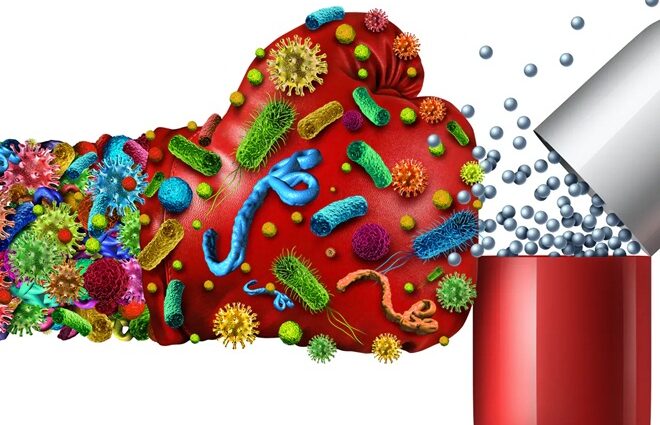Dr. Chandrashekhar T. & Dr. Rahul Pandit
The subject of antibiotic resistance being one of the biggest threats to global health and development has been discussed several times in the past. But its significance has never felt so imperative before. Given the pandemic, extensive use of antibiotics to fight secondary infections or a simultaneous bacterial infection, significant spurt in self-medication and antibiotic resistance pattern has worsened. There is enough research that suggests that our approach in treating COVID in hospitals could be exacerbating this problem.
Antibiotic resistance leads to longer hospital stays, higher medical costs, and increased mortality. What’s more worrying is that April 2021 WHO report revealed that none of the 43 antibiotics currently being developed “sufficiently address the problem of drug resistance”. If global Antimicrobial Resistance (AMR) goes unchecked, we will face a future where even minor infections could mean death. We may witness more than 10 million deaths due to AMR worldwide by 2050.
SO, LET’S FIRST UNDERSTAND WHAT ANTIBIOTIC RESISTANCE IS.
Antibiotics are medicines used to prevent and treat bacterial, viral, and fungal infections. It occurs when these pathogens change in response to the use of these medicines. These organisms may infect humans and animals, and the infections they cause are harder to treat than those caused by a non-resistant pathogen. Moreover, poor infection control practices, negligent antibiotic use and the consistent dismissal of warnings against overuse of antibiotics often result in antibiotic resistance.
RISE OF AMR DURING COVID
We have already seen the rise of secondary infections and rare fungal infections such as Mucormycosis, Candidiasis, or Aspergillosis, taking a toll on COVID patients during the second wave. Several studies attribute this to the injudicious use of steroids and other antibiotics. Going forward, we may even see an increased incidence of drug-resistant TB and many such illnesses, if we do not check on the appropriate use of antibiotics.
Now, to address this issue, Fortis Hospital conducted a study to understand the effect of adherence to protocols for COVID care and its link to a reduction in incidences of Mucormycosis. The study revealed that under strict protocol-driven use of steroids and nurse-driven tight control of glycemia, the occurrence of Mucormycosis can be avoided. The other aspect highlighted in the study was that the use of other immunomodulatory drugs in patients if kept very low, can be beneficial in avoiding any secondary infections. It is also important to note that strict quality of oxygen humidification protocols and biosafety by nursing care should also be maintained. Like this, more and more healthcare providers urgently need to change the way steroids and antibiotics are prescribed & used.
SELF-MEDICATION, THE BIGGEST THREAT
Drug resistance caused by self-medication with antibiotics can be seen as one of the growing global threats. Self-medication is frequently noted as one of the major factors contributing to drug resistance. The World Health Organization (WHO) defines self-medication as “the selection and use of medicines by individuals to treat self-recognized illnesses or symptoms”. Moreover, lack of knowledge is a major factor responsible for inappropriate antimicrobial use and hence resistance.
NEED FOR MORE ANTIBIOTIC STEWARDSHIP PROGRAMS
Antibiotic stewardship programs are very much needed, to help providers and clinicians make the best clinical decisions possible for antibiotic prescribing. Antibiotic stewardship is the systemic effort to ensure effective treatment of infections, and therefore combat AMR, by monitoring and advising on antibiotic prescription and use.
The other way to curb antibiotic resistance is when hospitals can effectively manage their waste. Some researchers believe that the waste could be better managed if hospitals switched to biodegradable – mainly bio-based – disposable products. These could then be sent to anaerobic digestion plants or composting facilities, creating a single, more environmentally friendly, waste stream.
At the end, the pandemic is demonstrating the true magnitude of the antibiotic resistance threat. It is time we take the right action. Even if new medicines are developed, without behavior change, antibiotic resistance will become the next big pandemic which will be hard to control and will the biggest threat to humanity. Behavior changes must also include actions to reduce the spread of infections through judicious use of medicines, controlling self-medication, vaccination, hand washing, practicing safer sex, and good food hygiene.
Dr. Chandrashekhar T. is Head-Critical Care, Fortis Hiranandani Hospital, Navi Mumbai & Dr. Rahul Pandit, Director-Critical Care, Fortis Hospitals Mumbai ~

